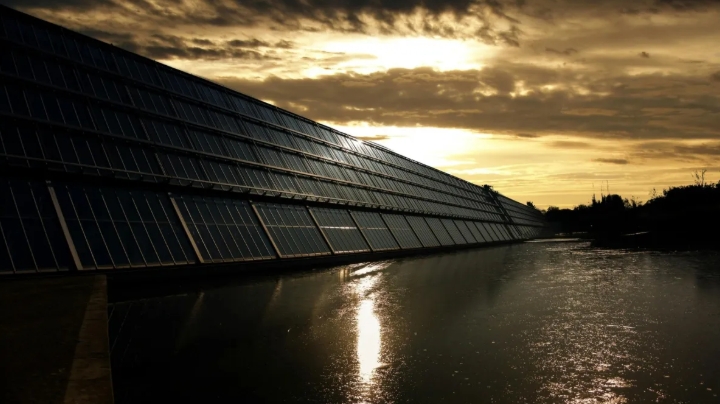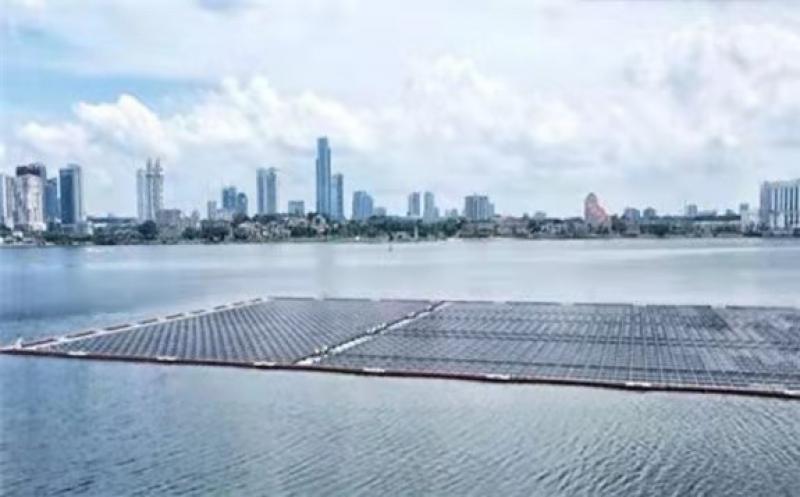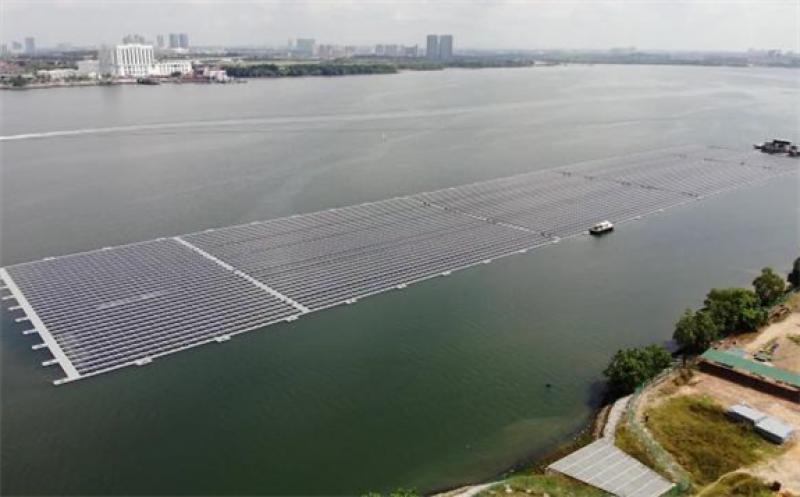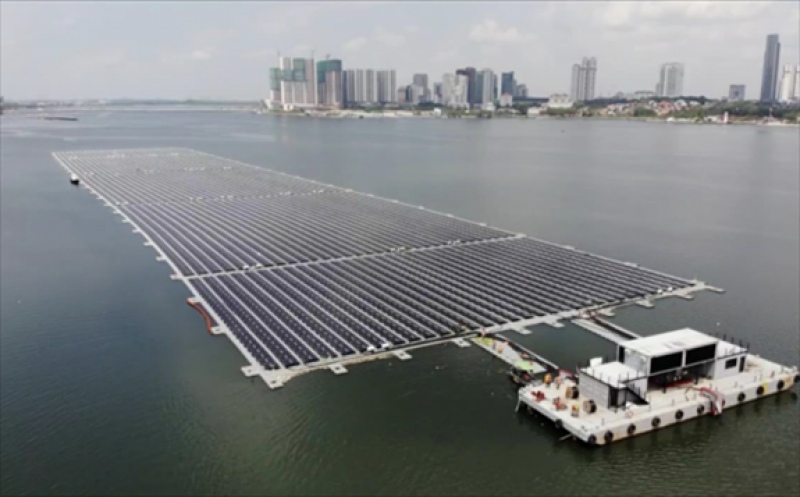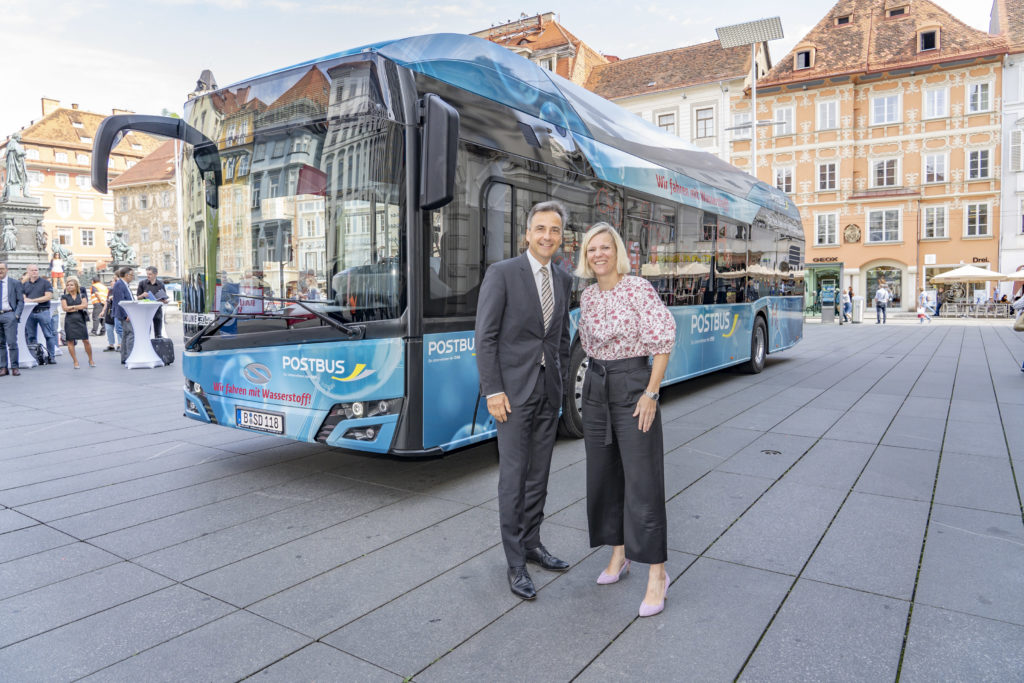
Today (14th of August) ÖBB-Postbus GmbH and Graz Linien started a week-long test operation of an emission-free hydrogen bus in and around Graz. The hydrogen propulsion technology is a promise for the future: no climate-damaging emissions are generated while driving. Another plus for passengers and residents is the low noise level.
Together new ways for climate-friendly traffic
Postbus, as the largest bus company in Austria, takes responsibility for future generations. Achieving the EU’s climate change goals to reduce CO2 emissions requires a rethinking of mobility behavior and new technologies. After Postbus tested a hydrogen bus in Vienna for the first time last October, a strong partner was found with Graz Linien for another test – the first in Graz. The hydrogen bus is tested both in city traffic and in the surrounding area. Thus, further important conclusions can be drawn for a future regular use of hydrogen-powered buses.
“It is clear that it needs a comprehensive start-up financing for a regular use, as well as investments in electrolysers and filling stations. Now it is time to go into implementation as soon as possible” says Silvia Kaupa-Götzl .
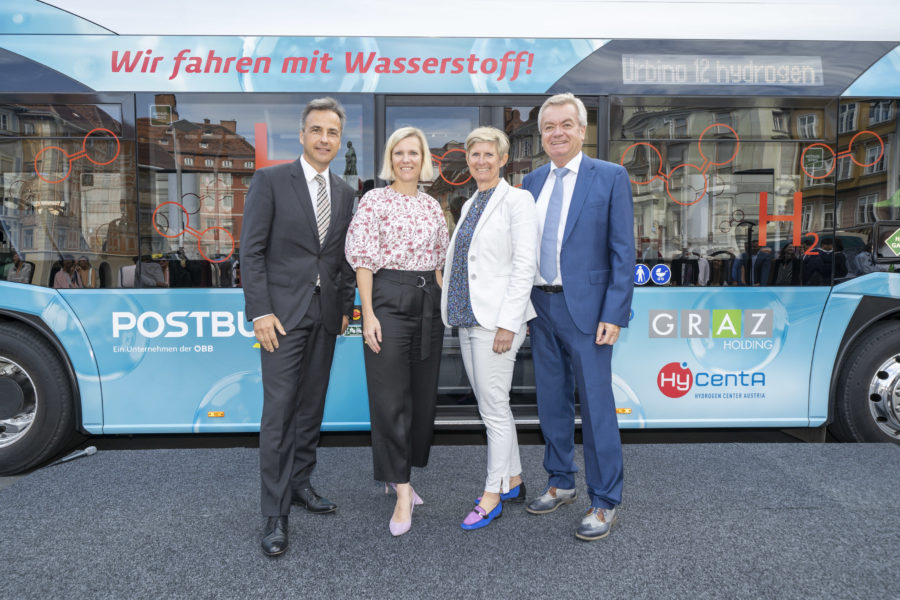
Regional flagship projects in Styria
“The province of Styria can look back on real lighthouse projects: the state of Styria currently invests around EUR 90 million per year in public transport in Styria. Half – around € 45 million – will be used for transport services, € 25 million will be invested in infrastructure development, and the remaining € 20 million will go to the interconnected tariff. It also always strives to new customers: So the new, year-round leisure ticket offers a cheap 11 euros many opportunities by bus, train and Bim to travel to Styria. Especially in the fine dust season, the action “My Air – Pure Air” has proven itself as a starter liqueur, the action hourly ticket = day ticket on the “free Friday” has established itself as an indispensable action for air pollution control, “says the Styrian Transport and Environment Council,Anton Lang .
City of Graz relies on climate-friendly public transport
“By 2025, the city of Graz will only operate more emission-free public transport. With our new acquisitions of buses and trams we rely on a mix of CO2-neutral drive technologies. Hydrogen technology seems to be one of the most promising solutions for public transport in the future, “says Graz Mayor Siegfried Nagl .
” In addition to e-buses, we are now testing hydrogen buses for their everyday use in regular service mode On the basis of the results, the best ecological technology will be selected at the next bus purchase, “said Graz Holding Board Member Barbara Muhr .
This is how it is tested
The bus will be provided for testing by Solaris. He is tested on different lines in Graz and surroundings. For refueling, ÖBB Postbus and the Graz Linien are using the infrastructure of HyCentA Research GmbH in Graz. It currently operates the only hydrogen filling station in Austria that can be used for buses (the boost pressure for buses is lower than for cars). Approximately 30 kg of hydrogen are pumped into the bus per refueling process. For 15 years, HyCentA Research GmbH has been Austria’s only non-university research institution dedicated exclusively to hydrogen development and research projects.
Good for overland traffic
Hydrogen buses are also technically electric buses. But they are operated with hydrogen as fuel instead of batteries. The bus is fueled with hydrogen and in the fuel cell installed in the vehicle then takes place by supplying oxygen, a chemical reaction in which energy is generated. Unlike battery-powered buses, power generation happens directly in the vehicle. The range of a hydrogen-powered bus is approximately 350 to 450 km per tank fill. Hydrogen buses are therefore well suited for overland travel. They also refuel quickly (10 – 15 min.) And impress with full route flexibility, high performance and safety as well as a high degree of technological maturity.
Green hydrogen: harnessing excess electricity with hydrogen
For hydrogen and fuel cell mobility to be truly sustainable, the energy needed to produce hydrogen should come from renewable energy sources such as solar, wind and hydro. Since these sources produce excess capacity at certain times, hydrogen is a welcome “energy store” that can harness surplus electricity.
Postbus: mobility partner in rural areas
The Postbus with its approximately 2,300 buses annually brings about 208 million passengers to their destination and also drives wherever there is otherwise no public connection. The buses run daily in about 1,800 communities and thus provide public connections in rural areas. Postbus, the largest bus company in Austria, will take over responsibility for future generations and will switch to climate-friendly propulsion systems in the long term. Postbus is the only bus company in Austria that has already implemented pilot projects in the area of e-mobility and hydrogen propulsion.
ÖBB: Austria’s largest mobility service provider
As a comprehensive mobility service provider, the ÖBB Group brings 474 million passengers and 113 million tonnes of goods to the destination in an environmentally friendly manner every year. Particularly climate-friendly are the train travelers on the way. Because 100 percent of the traction current comes from renewable energy sources. With around 96 percent punctuality, ÖBB was one of the most punctual railways in Europe in 2018. Group-wide, 41,641 train and bus employees (plus around 1,900 apprentices) ensure that around 1.3 million passengers reach their destination every day. The Group’s strategic parent company is ÖBB-Holding AG.
